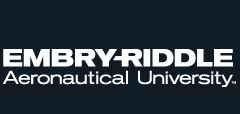Proposal / Submission Type
Peer Reviewed Paper
Start Date
20-5-2009 3:55 PM
Abstract
Forensics and information technology (IT) have become increasingly important to accountants and auditors. Undergraduate accounting students are introduced to general IT topics but discussion of forensic knowledge is limited. A few schools have introduced an undergraduate major in forensic accounting. Some graduate schools offer accounting students an emphasis in forensic or fraud accounting that includes instruction in forensics and information technology. When students do not view the IT topics as being equally important to their careers as traditional accounting topics, these attitudes may reduce the quality of the course. In an effort to assess student attitudes, a survey of 46 graduate accounting students was conducted to measure two dimensions − knowledge and skills and interest and enjoyment − along nine common topics found in a forensics IT course. The association of the two dimensions was then measured. Also, the relationship between IT attitudes and the nine topics was measured along both dimensions. Fifteen hypotheses are presented and tested. Results are discussed to posit what instructors can do in order to increase the quality of the class and the positive perception of IT for accounting students.
Keywords: Forensics, Accounting education, Information technology forensics, IT auditing.
Scholarly Commons Citation
Kearns, Grover S., "Graduate Accounting Students' Perception of IT Forensics: A Multi-Dimensional Analysis" (2009). Annual ADFSL Conference on Digital Forensics, Security and Law. 2.
https://commons.erau.edu/adfsl/2009/wednesday/2
Included in
Computer Engineering Commons, Computer Law Commons, Electrical and Computer Engineering Commons, Forensic Science and Technology Commons, Information Security Commons
Graduate Accounting Students' Perception of IT Forensics: A Multi-Dimensional Analysis
Forensics and information technology (IT) have become increasingly important to accountants and auditors. Undergraduate accounting students are introduced to general IT topics but discussion of forensic knowledge is limited. A few schools have introduced an undergraduate major in forensic accounting. Some graduate schools offer accounting students an emphasis in forensic or fraud accounting that includes instruction in forensics and information technology. When students do not view the IT topics as being equally important to their careers as traditional accounting topics, these attitudes may reduce the quality of the course. In an effort to assess student attitudes, a survey of 46 graduate accounting students was conducted to measure two dimensions − knowledge and skills and interest and enjoyment − along nine common topics found in a forensics IT course. The association of the two dimensions was then measured. Also, the relationship between IT attitudes and the nine topics was measured along both dimensions. Fifteen hypotheses are presented and tested. Results are discussed to posit what instructors can do in order to increase the quality of the class and the positive perception of IT for accounting students.
Keywords: Forensics, Accounting education, Information technology forensics, IT auditing.

